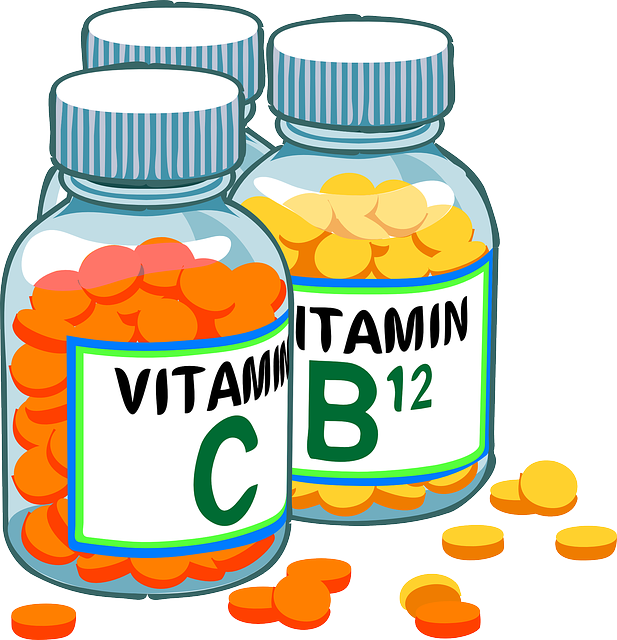Holistic health programs focus on the interconnectedness of physical, mental, and emotional well-being, addressing root causes through natural methods. These programs emphasize mindfulness, nutrition, movement, and stress management, fostering mental clarity, resilience, and physical vitality. By integrating diverse activities like exercise, nature connections, and creative pursuits, holistic health optimizes overall wellness. Success is measured qualitatively, through introspection and reflection, tracking progress and making informed adjustments tailored to individual needs.
In today’s fast-paced world, holistic approaches to physical and mental health are more crucial than ever. This comprehensive guide explores the transformative power of uniting body and mind through holistic health programs. We delve into the core principles that underpin these programs, offering practical insights on integrating various activities for optimal wellness. Additionally, we provide strategies for measuring success by tracking progress, ensuring a journey towards holistic well-being is both effective and sustainable.
- Understanding Holistic Health: Uniting Body and Mind
- The Core Principles of Holistic Health Programs
- Integrating Activities for Optimal Wellness
- Measuring Success: Tracking Progress in Holistic Health Journeys
Understanding Holistic Health: Uniting Body and Mind

Holistic health is an approach that recognizes the deep connection between our physical bodies and mental well-being. It’s about understanding that each aspect of our lives—from nutrition and exercise to stress levels and social connections—intertwines and impacts our overall health. Unlike traditional medicine, which often treats symptoms separately, holistic health programs focus on addressing the root causes of ailments by uniting body and mind.
By adopting a holistic mindset, we begin to see ourselves as intricately woven beings where mental clarity, emotional resilience, and physical vitality are all interconnected. This means that stress management techniques, such as meditation or yoga, can be just as effective as physical activity in preventing chronic diseases and promoting a sense of calm and balance. Holistic health programs encourage individuals to take responsibility for their own well-being by making conscious choices that nurture both the body and mind.
The Core Principles of Holistic Health Programs

Holistic health programs are centered around the belief that physical and mental well-being are intricately linked, and thus, require a comprehensive approach to achieve true vitality. These programs prioritize natural, integrated methods to foster a state of balance and harmony within the individual. The core principles often include mindfulness, nutrition, movement, and stress management—all working in tandem to optimize health.
By addressing these aspects holistically, holistic health programs aim to treat the root causes of ailments rather than merely managing symptoms. Mindfulness practices help individuals connect with their bodies and minds, promoting a sense of calm and awareness. Proper nutrition supports overall physiological function while specific dietary interventions can target particular health concerns. Movement, in its various forms, improves circulation, enhances flexibility, and stimulates the release of endorphins—all contributing to physical and mental rejuvenation.
Integrating Activities for Optimal Wellness

In the pursuit of optimal wellness, integrating various activities into your routine is a cornerstone of holistic health programs. This approach recognizes that physical and mental well-being are intricately linked and cannot be treated in isolation. Activities like regular exercise, mindfulness practices, and connecting with nature enhance both body and mind. For instance, a brisk walk in the park not only promotes cardiovascular health but also offers a moment of tranquility, reducing stress levels.
Moreover, incorporating activities that stimulate creativity, such as art or music, can significantly contribute to mental resilience. Holistic health programs thus encourage a diverse range of pursuits, ensuring an all-encompassing approach to wellness. By balancing physical movement, mental stimulation, and relaxation techniques, individuals can achieve a state of harmony that supports overall health and vitality.
Measuring Success: Tracking Progress in Holistic Health Journeys

Measuring success in holistic health journeys is a deeply personal and nuanced process, as each individual’s path is unique. Unlike traditional models focused solely on numerical outcomes, holistic health programs emphasize qualitative progress and overall well-being. Tracking your journey involves introspection and reflection on how you feel, think, and interact with the world around you. This might include noting improvements in sleep quality, increased energy levels, enhanced emotional resilience, or a deeper connection to nature.
Journaling, meditation, and regular check-ins with healthcare professionals can serve as effective tools for gauging progress. By documenting your experiences, emotions, and physical sensations, you gain valuable insights into what’s working and what needs adjustment. These practices allow you to celebrate small wins, identify areas of challenge, and make informed decisions tailored to your specific holistic health program.
Holistic approaches to physical and mental health, as explored through this article on holistic health programs, offer a transformative path to well-being. By understanding the deep connection between body and mind, embracing core principles like mindfulness and balance, and integrating diverse activities, individuals can unlock their optimal wellness potential. Measuring success through consistent tracking of progress enables personal growth and empowers sustainable lifestyle changes. Embracing these holistic health programs is a step towards a more vibrant and fulfilling life.
